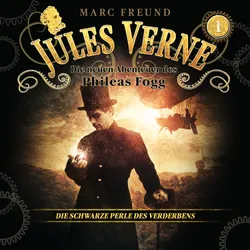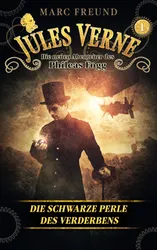THE GREAT SEA ADVENTURE - Pirate Novels, Treasure-Hunt Tales & Maritime Stories stands as a compelling anthology that delves into the heart of human curiosity and adventure upon the high seas. This collection showcases a wide array of literary styles, ranging from the richly detailed narratives of Jules Verne to the dark, psychological depths of Edgar Allan Poe, manifesting a breathtaking diversity in storytelling. With tales of daring pirates, treacherous oceans, and elusive treasures, this anthology not only captures the essence of maritime adventure but also highlights significant works that have shaped the literary landscape of their time, including the hauntingly beautiful prose of Joseph Conrad and the swashbuckling tales of Rafael Sabatini. The thematic breadth and varied stylistic approaches offer readers a panoramic view of the sea as both a literal and metaphorical venue for conflict and discovery. The authors whose works are featured in this anthology are titans of literature, having contributed profoundly to not only the genres of adventure and maritime literature but also to the broader canon of English literature. From the romanticized historical narratives of Walter Scott to the pioneering adventure tales of Jack London, these authors collectively encapsulate a range of historical, cultural, and literary movements. Their stories, rooted in different times and places, converge in this collection to provide a multifaceted exploration of the theme of adventure and human struggle against the inexorable forces of nature. This anthology is more than a mere gathering of tales; it represents a pivotal era in literature where the sea was a canvas for heroism, mystery, and the eternal quest for freedom and discovery. THE GREAT SEA ADVENTURE is an indispensable collection for those who are drawn to the allure of the sea and the tales it inspires. By amalgamating works from such an illustrious group of authors, the anthology offers readers a unique opportunity to immerse themselves in the varied perspectives, themes, and narrative styles that epitomize sea adventure literature. It invites scholars, students, and enthusiasts of maritime history and literature alike to explore the depths of human courage, folly, and the ceaseless pursuit of the unknown. Through its pages, the reader is not only educated but also entertained and inspired to perhaps embark on their own literary voyage across the tempestuous oceans of human imagination and experience.

Die neuen Hörbuch-Abenteuer des Phileas Fogg, Folge 1: Die schwarze Perle des Verderbens
Jules Verne, Marc Freund
audiobook
Die neuen Hörbuch-Abenteuer des Phileas Fogg, Folge 2: Verschollen unter dem Meer
Jules Verne, Marc Freund
audiobook
Die Jagd nach dem Meteor
Jules Verne
audiobookbook
Die neuen Hörbuch-Abenteuer des Phileas Fogg, Folge 3: Die vergessene Kolonie
Jules Verne, Marc Freund
audiobook
Die neuen Hörbuch-Abenteuer des Phileas Fogg, Folge 6: Gefahr für Eden 2
Jules Verne, Marc Freund
audiobook
Die neuen Hörbuch-Abenteuer des Phileas Fogg, Folge 5: Weiße Hölle, schwarzes Gold
Jules Verne, Marc Freund
audiobook
Frritt Flacc - Der Sturm
Jules Verne
audiobook
Around the World in Eighty Days : A Thrilling Journey of Adventure and Determination
Jules Verne, Zenith Blue Ridge Books
book
Reise um die Erde in 80 Tagen / in 80 Tagen um die Welt - Hörbuch Klassiker
Jules Verne, Hörbuch Klassiker
audiobook
20.000 Meilen unter dem Meer - Hörbuch
Jules Verne
audiobook
Die neuen Hörbuch-Abenteuer des Phileas Fogg, Folge 4: Die Söhne des Abgrunds
Jules Verne, Marc Freund
audiobook
Die schwarze Perle des Verderbens
Jules Verne, Marc Freund
book
